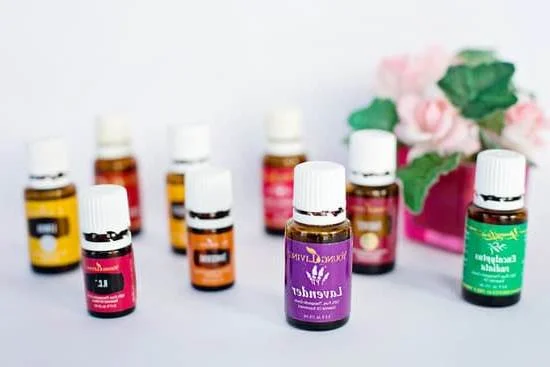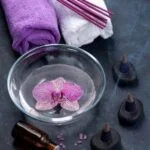Can aromatherapy be used to cure insomnia? Aromatherapy is a holistic healing treatment that uses natural plant extracts to promote health and well-being. In this article, we will delve into the potential benefits of aromatherapy for treating insomnia. We will explore the effectiveness of essential oils in promoting relaxation and better sleep, as well as understanding how aromatherapy works to address sleep issues.
Aromatherapy utilizes the aromatic essence of plant extracts, such as essential oils, to enhance both physical and emotional health. These oils can be inhaled or absorbed through the skin, where they are believed to stimulate brain function and impact the nervous system. As we investigate the potential of aromatherapy for curing insomnia, it is important to understand its fundamental principles and how it may offer relief for those struggling with sleep disorders.
Insomnia is a common sleep disorder characterized by difficulty falling asleep or staying asleep. The causes of insomnia can range from stress and anxiety to medical conditions or lifestyle choices. With growing interest in natural remedies, many individuals are turning to aromatherapy as a non-invasive alternative for improving sleep quality. In the following sections, we will explore how aromatherapy may play a role in addressing this pervasive issue.
Understanding Insomnia
Insomnia is a sleep disorder characterized by difficulty falling asleep or staying asleep, even when the individual has the opportunity to do so. It can be short-term, lasting for days or weeks, or long-term, which can persist for a month or more.
Common causes of insomnia include stress, anxiety, depression, poor sleep habits, medications, caffeine intake, and underlying health conditions such as asthma, arthritis, cancer, or heart failure. It can also be a symptom of other sleep disorders such as sleep apnea or restless legs syndrome.
The impact of insomnia goes beyond feeling drowsy during the day. It can lead to decreased energy levels, irritability, difficulty focusing on tasks, and an overall reduced quality of life. Chronic insomnia has been linked to an increased risk of mental health disorders and other medical conditions. Understanding the causes of insomnia is crucial in determining the appropriate treatment approach. Identifying and addressing any underlying physical or mental health issues is important in effectively managing insomnia.
Incorporating aromatherapy into a holistic approach to treating insomnia may provide relief for some individuals. By targeting stress and anxiety – common culprits of sleep disturbances – certain essential oils have shown promising results in promoting relaxation and improving sleep quality. The aroma of these essential oils can positively affect mood and emotions while reducing feelings of stress and anxiousness that often contribute to insomnia.
| Insomnia Causes | Impact on Health |
|---|---|
| Stress | Decreased energy levels and irritability |
| Anxiety | Difficulty focusing on tasks |
| Poor Sleep Habits | Reduced quality of life |
The Role of Aromatherapy
Aromatherapy is the use of essential oils to promote physical and psychological well-being. It works by stimulating the smell receptors in the nose, which then send messages through the nervous system to the limbic system – the part of the brain that controls emotions. Aromatherapy has been used for centuries as a holistic treatment for various ailments, including insomnia.
Insomnia is a sleep disorder characterized by difficulty falling asleep, staying asleep, or having non-restorative sleep. Common causes of insomnia include stress, anxiety, depression, chronic pain, and certain medications. Aromatherapy can potentially help treat insomnia by promoting relaxation, reducing stress and anxiety, and creating a conducive environment for sleep.
How Aromatherapy Works for Insomnia
The aroma from essential oils can trigger changes in the body’s nervous system that promote relaxation and reduce stress levels. When inhaled, these oils can have a calming effect on the mind and body, helping individuals achieve a state of mental tranquility that is conducive to sleep. Additionally, some essential oils have sedative properties that can help regulate sleep patterns and improve overall sleep quality.
Benefits of Aromatherapy for Insomnia
One of the main benefits of using aromatherapy for insomnia is its ability to promote relaxation without the potential side effects commonly associated with prescription sleep medications. Furthermore, aromatherapy offers a natural and holistic approach to treating insomnia that focuses on addressing the root cause of sleep disturbances rather than simply masking symptoms.
Additionally, aromatherapy can be easily integrated into daily routines and used in conjunction with other relaxation techniques such as meditation and yoga to enhance its effectiveness in promoting restful sleep.
Best Essential Oils for Insomnia
When it comes to using aromatherapy for treating insomnia, there are several essential oils that are known for their sleep-inducing properties. These oils have been used for centuries to promote relaxation and improve sleep quality. Here are some of the best essential oils for insomnia:
- Lavender Oil: Lavender is perhaps one of the most well-known essential oils for promoting relaxation and improving sleep. Its soothing scent has been shown to reduce anxiety and stress, making it an ideal choice for those struggling with insomnia.
- Chamomile Oil: Chamomile is another popular essential oil that is often used to aid in relaxation and improve sleep. It has a gentle, floral aroma that can help calm the mind and prepare the body for rest.
- Valerian Root Oil: Valerian root has long been used as a natural remedy for insomnia. The oil derived from this herb is believed to have sedative properties that can help induce sleep and improve overall sleep quality.
In addition to these top essential oils, other options such as bergamot, cedarwood, and ylang-ylang may also be beneficial in promoting better sleep. It’s important to note that while these essential oils have been traditionally used for managing insomnia, individual responses may vary. Therefore, it’s advisable to experiment with different oils or seek advice from a qualified aromatherapist before settling on a specific option.
When using essential oils for insomnia, it’s important to choose high-quality, pure oils from reputable sources in order to experience their full therapeutic benefits. In the following section “How to Use Aromatherapy for Insomnia”, we will explore various methods of incorporating these essential oils into your bedtime routine to help improve your quality of sleep.
How to Use Aromatherapy for Insomnia
Aromatherapy offers various methods for using essential oils to promote better sleep and alleviate insomnia. These methods can be easily incorporated into daily routines and can be tailored to individual preferences. Here are some effective ways to use aromatherapy for insomnia:
Diffusion
One of the most popular and easiest ways to use aromatherapy for better sleep is through diffusion. This method involves using a diffuser to disperse essential oils into the air, creating a calming and soothing atmosphere in the bedroom. Different types of diffusers are available, including ultrasonic, nebulizing, heat, and evaporative diffusers, each with its unique way of releasing essential oils into the air.
Topical Application
Another common method for using aromatherapy is through topical application. Essential oils can be diluted in a carrier oil such as coconut oil or almond oil and applied to the skin through massage or simply by rubbing onto pulse points. This allows the aroma of the essential oils to be absorbed into the body, providing relaxation and contributing to better sleep quality.
Aromatherapy Inhalers
For those who prefer a more portable option, aromatherapy inhalers can be used as a convenient way to enjoy the benefits of essential oils on-the-go. These inhalers contain a cotton wick that is infused with essential oils and can be easily carried in a pocket or bag. Inhaling the aroma directly from the inhaler provides quick access to the calming effects of essential oils, making it ideal for use during travel or at work.
By incorporating these different methods of aromatherapy into your daily routine, you can experience their potential benefits in promoting better sleep and alleviating insomnia.
Aromatherapy vs Traditional Treatments
When it comes to treating insomnia, people often turn to traditional medications such as sleeping pills. However, there is a growing interest in alternative therapies like aromatherapy to help alleviate sleep issues. Aromatherapy involves the use of essential oils extracted from plants to promote relaxation and improve overall well-being. Here are some benefits and drawbacks of using aromatherapy versus traditional medication for insomnia:
Benefits of Aromatherapy:
- Natural and non-invasive: Aromatherapy offers a natural approach to improving sleep without the potential side effects of traditional medications.
- Stress reduction: Certain essential oils used in aromatherapy have been shown to reduce stress and anxiety, which can contribute to better sleep quality.
- Personalization: Aromatherapy allows individuals to customize their treatment by choosing specific essential oils that work best for their unique needs.
Drawbacks of Traditional Medication:
- Potential side effects: Many sleep medications come with the risk of side effects such as dizziness, drowsiness, and dependency.
- Withdrawal symptoms: Long-term use of sleeping pills can lead to withdrawal symptoms when discontinued, making it difficult for individuals to stop using them.
- Masking underlying issues: Traditional medication may only provide temporary relief from insomnia symptoms without addressing the root cause of the sleep problem.
Research and Studies
When it comes to using aromatherapy for insomnia, many people wonder if there is any scientific evidence to support its effectiveness. While more research is needed, several studies have shown promising results in using aromatherapy to improve sleep quality and alleviate insomnia symptoms.
One study published in the Journal of Alternative and Complementary Medicine found that inhalation of lavender essential oil improved the quality of sleep in participants with insomnia. Another study in the same journal discovered that a blend of essential oils including lavender, Roman chamomile, and neroli helped women with insomnia improve their overall sleep quality.
A review article published in the International Journal of Nursing Practice concluded that aromatherapy can be a safe and effective intervention for improving sleep quality, specifically mentioning its potential benefits for individuals with insomnia. These studies provide valuable insights into the potential effectiveness of aromatherapy as an alternative treatment for those struggling with insomnia.
| Study | Results |
|---|---|
| Journal of Alternative and Complementary Medicine (2014) | Lavender essential oil improved sleep quality in participants with insomnia. |
| International Journal of Nursing Practice (2017) | Aromatherapy showed potential benefits for individuals with insomnia. |
Tips for Using Aromatherapy Safely
In conclusion, while aromatherapy can be a helpful and natural approach to alleviating insomnia, it is important to use it safely and in conjunction with other healthy sleep habits. Aromatherapy works by stimulating the olfactory system and triggering a calming response in the brain, which can be especially beneficial for those struggling with insomnia. By using essential oils such as lavender, chamomile, and bergamot, individuals may experience improvements in their sleep quality and duration.
When using aromatherapy for insomnia, it is crucial to follow guidelines for safe usage. This includes diluting essential oils properly, avoiding certain oils if pregnant or with specific health conditions, and testing for any potential allergies. Additionally, combining aromatherapy with good sleep hygiene practices such as maintaining a regular sleep schedule, creating a relaxing bedtime routine, and reducing exposure to screens before bed can maximize its effectiveness in treating insomnia.
While aromatherapy presents a promising alternative to traditional medication for insomnia, it is important to note that individual responses may vary. Some individuals may find relief from their symptoms through the use of essential oils, while others may not experience the same benefits.
It is advisable to consult with a healthcare professional before starting any new treatment regimen for insomnia, including aromatherapy. Ultimately, incorporating aromatherapy into a comprehensive approach to addressing insomnia may offer additional support and contribute to better overall sleep health.
Frequently Asked Questions
Does Aromatherapy Work for Insomnia?
Aromatherapy has been found to be effective in helping some people with insomnia. Certain essential oils like lavender, chamomile, and bergamot have calming and sedative effects that can help promote relaxation and improve sleep quality. While it may not work for everyone, many people find relief from insomnia symptoms through aromatherapy.
Does Aromatherapy Cure Sleep?
Aromatherapy is not a cure for sleep disorders, but it can certainly aid in improving sleep quality. By using specific essential oils or blends that promote relaxation and calmness, individuals may find it easier to fall asleep, stay asleep, and wake up feeling more rested. Aromatherapy is often used as a complementary therapy alongside other treatments for sleep issues.
What Aromatherapy Is Good for Awake?
Certain stimulating essential oils like peppermint, eucalyptus, and citrus blends can be helpful for promoting wakefulness and alertness. These invigorating scents can help increase mental focus and energy levels during times of fatigue or drowsiness. However, it’s important to note that aromatherapy alone may not be enough to combat severe or chronic feelings of tiredness or sleepiness.

Are you looking for a natural way to improve your health and wellbeing?
If so, aromatherapy may be the answer for you.





